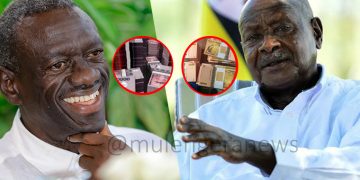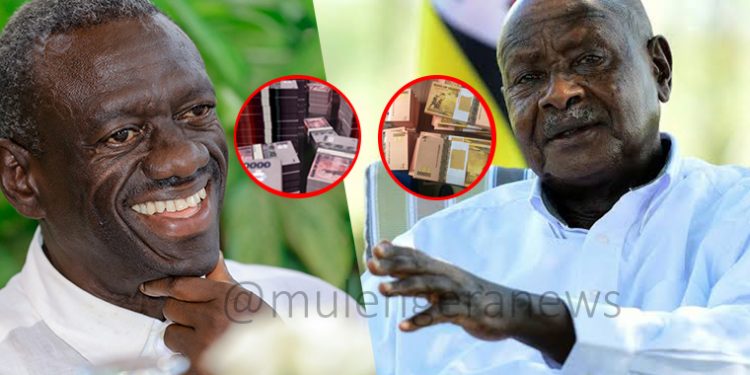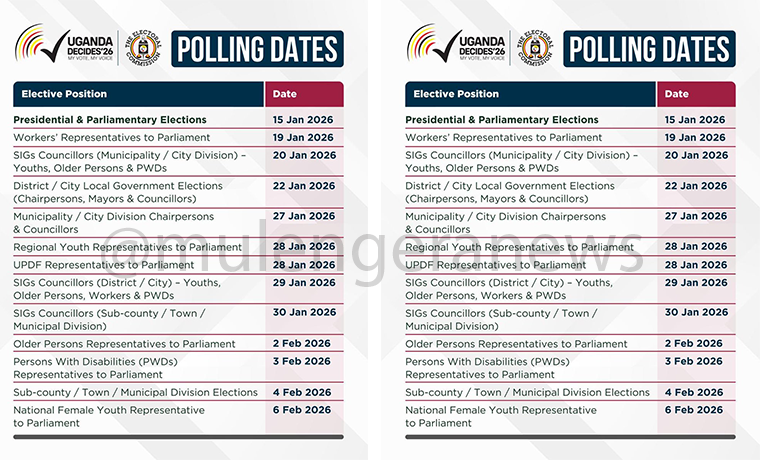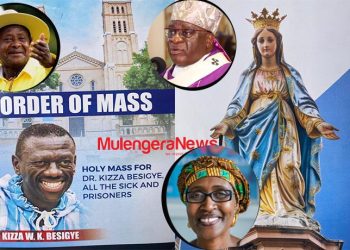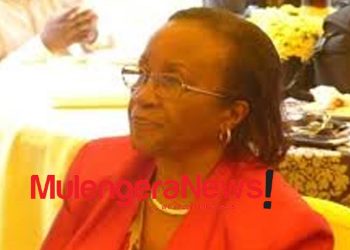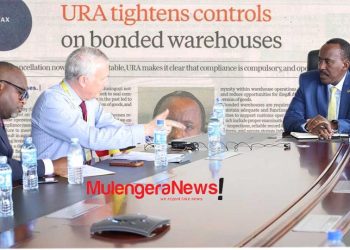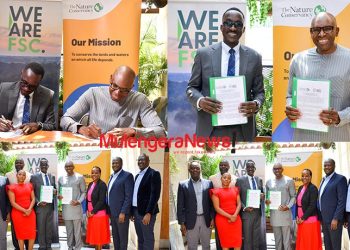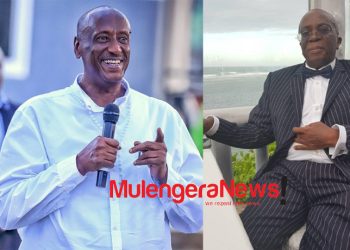By Aggrey Baba
In Uganda’s unpredictable political landscape, where opposition voices often complain of suffocation, the battle between power and justice took center stage in 2001, when retired Colonel Dr. Kizza Besigye, a fierce challenger of President Yoweri Museveni’s government, found himself barred from traveling abroad, and his movements restricted by security agencies without formal charges.
What stood out most was his defiant rejection of the government’s offer of financial compensation for the violation of his rights, with a resolute declaration that “My rights are not for sale.”
According to researcher Muwonge C.W Magembe, the saga began before Besigye officially entered the 2001 presidential race, when he opened two accounts at Standard Chartered Bank in Kampala, one for local currency and another for foreign funds, to mobilize resources for his campaign.
Magembe says the effort was backed by prominent figures, including Prince Vincent Kimera, Garuga Musinguzi, Prof. Masembe Kanyerezi, and Winnie Byanyima.
Despite this financial and political support, Besigye lost the election, with the Electoral Commission declaring Yoweri Museveni the winner with 69.33% of the vote against Besigye’s 27.82%.
Unconvinced by the results, Besigye sought to leave Uganda for a three-day working visit to South Africa on March 17, 2001, but security operatives, acting under orders from the Chief of Military Intelligence (CMI), Lt. Col. Noble Mayombo, barred him from boarding his flight at Entebbe International Airport.
This move stunned many and raised concerns about the freedom of movement guaranteed by Uganda’s Constitution.
Three days later, Besigye lodged a complaint with the Uganda Human Rights Commission (UHRC), demanding an explanation for what he termed an illegal restriction on his fundamental rights. The commission, led by Margaret Sekaggya, summoned Mayombo to justify the government’s actions.
In his defense, Mayombo accused Besigye of orchestrating bomb attacks in Kampala and insisted that his movements had to be sanctioned by President Museveni or the security minister.
As the investigation dragged on, Besigye attempted to travel again, this time to Nairobi, Kenya, in May, but he was blocked at the airport once again. This annoyed the Uganda Law Society (ULS) condemning the move, with its then vice-president, Andrew Kasirye, describing the restrictions as unconstitutional, given that the government had repealed the Public Order and Safety Act of 1967.
The matter escalated further when the UHRC engaged the Attorney General, seeking clarity on whether security agencies had the legal right to impose such travel bans. The government’s response was delayed, leaving Besigye increasingly frustrated. To many, the prolonged silence was an indication that the state had no legal basis for its actions.
It was at this point that the government, in an apparent attempt to settle the matter, offered Besigye financial compensation which the man from Rukungiri found insulting. “My rights are not for sale,” he declared, rejecting the compensation and demanding a formal recognition that he was free to travel wherever he wished.
On August 17, 2001, Besigye disappeared, but government denied knowledge of his whereabouts, only to resurface a week later in the United States.
Speaking from exile, the walk to work initiator claimed he had fled due to credible threats to his life. When asked if he would take up arms against the government, Besigye did not rule out the possibility, stating that if peaceful means of change were shut down, the country could be left with no other option.
The saga of Besigye’s travel ban was not just about one man’s fight, but a reflection of Uganda’s broader struggle for democracy, exposing the fragility of civil liberties in the face of state power.
[When the drums beat, the warriors prepare for battle], and Besigye’s defiance was a battle not just for his own rights, but for the freedoms of all Ugandans.
His rejection of money was a clear statement, that justice cannot be bought, and the fight for democracy must continue. (For comments on this story, get back to us on 0705579994 [WhatsApp line], 0779411734 & 041 4674611 or email us at mulengeranews@gmail.com).
